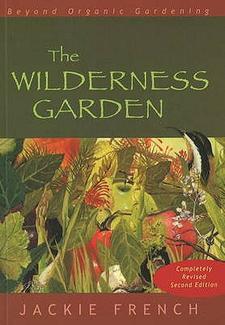Growing your own food is not only self-satisfying and rewarding, but it also provides food security. Using organic methods to grow food ensures that it is free from chemicals and contributes to a healthy environment. Organic gardening nurtures ecosystems and maintains the health of the soil, insects, water and people in the environment. With the right preparation, organic vegetable gardening for beginners can be a successful endeavour that keeps you planting season after season.
Creating a Plan
Before digging in, create a garden plan. Beware of starting out too big as this can create an unexpected workload and lead to frustration. Consider laying out your organic garden in blocks with a variety of vegetables instead of sowing rows of the same plant. Companion planting promotes plant growth and health and keeps pesky insects at bay. It is a good idea to keep your garden plan to remind yourself where vegetables were planted. For a healthy garden year after year, vegetables should be rotated to minimise the depletion of soil nutrients and to keep diseases and insect predators away.
Choosing a site

Healthy gardens require sunlight; plan for your garden to receive at least six hours of sunlight per day. Ideally your garden site should also be somewhere you can get to easily, for quick harvesting or watering at the end of a long day. The closer it is to your back door, or your usual daily route through your garden, the better.
Soil
Creating a rich, fertile soil is the most important step in establishing a productive garden. Healthy soil is rich in nutrients and microorganisms. The soil’s nutrients must be continuously replenished by adding compost and organic manures.
To maximize the potential of your soil, perform a basic soil test. There are many do-it-yourself kits available or some laboratories will do it for you. The tests indicate what nutrients are deficient, the soil’s pH and what type of soil you have.
If you think that your site may be contaminated with toxins due to its prior use, check with your local council to find out what existed on the site in the past. There are labs that will test soil for specific toxins.
Selecting seeds
Most seeds from conventional nurseries are not organic, meaning that they have come from genetically modified plants or from plants coated in chemicals. To ensure that your garden is truly organic, source organic seeds; besides, supporting organic seed production promotes ecologically sound practices.
Pest Management Techniques
Organic gardening is synonymous with balance. Therefore, the idea is not to eradicate all insects from your garden but rather, create a healthy balance of insects that keep everything in check. Intercropping your vegetables with a diverse array of herbs and flowers will not only give variety and beauty to your garden but will also make your vegetables more resistant to pests.
For example, beneficial insects such as hoverflies and ladybugs will keep aphids away. Flowers such as marigolds and nasturtiums can protect your vegetables from white fly. Consider planting decoys like radishes around squash and cucumbers. The pesky insects will flock to the radishes and leave your highly prized vegetables alone. Once the radishes are devoured, simply pull them out.
If an insect infestation is quickly destroying your crop, you may have to resort to an organic spray. Many are available for purchase and target specific insects rather than wiping out every insect in the vicinity. However, many remedies can be concocted from your own cupboards. Garlic, pyrethrum and chilli are beneficial in discouraging invading insects. A diluted soap solution takes care of aphids, and salt protects your vegetables from snails and slugs.
If you are allowed to keep chickens in your yard, they love to eat bugs. In addition, they provide fertilizer and delicious eggs.
Planting your garden close to your house and frequenting it often allows you to identify pests early so that they can be dealt with before they become overwhelming and devour the crops before you do.
Organic Fertilizers

Prior to planting, dig organic manures and compost from your own kitchen and yard into the soil to add nutrients. Once your growing season is underway, use an organic fertilizer to help boost the plants’ nutrients. Before pouring fertilizer on every plant, keep in mind that root vegetables like carrots and potatoes do not like liquid fertilizers.
Seaweed extract is a great source of iodine, potassium and other minerals. It is a vegetable based fertilizer making it suitable for vegans and strict vegetarians.
Worm castings make an excellent fertilizer and can come from your own garden if you have worms. If the garden is newly established, castings and worms are usually available from nurseries.
Compost tea is another invaluable organic fertilizer. Simply put two shovelfuls of compost into a burlap bag and let it steep in a bucket of water for one week. Remove the bag and add water to the bucket until it resembles a weak tea. You can then use a watering can to pour the tea onto the plants’ roots.
Weed Control
Mulch, in the form of bark, compost, straw, peat moss and lawn clippings, is an excellent way to not only insulate the soil and maximize water retention, but it also acts as an effective weed control. By smothering seedlings, inhibiting light and preventing airborne seeds from taking hold, mulch reduces the need for other weed control methods.
At the End of the Day
When the gardening season ends, plant cover crops like legumes and annual winter crops to add organic matter to your soil, to inhibit weed growth and to keep the soil’s quality and fertility high. To grow organic vegetables and fruits requires attention, but once your system is established, the symbiotic nature of an organic vegetable garden makes the work easier in the long run. Don’t be afraid to experiment with different techniques and methods–growing organic vegetables is a process, so get amongst it!
Angela Christensen holds a Masters degree in Sustainable Communities where her passion lies in small-scale, sustainable agriculture. When she isn’t playing with her two young children, she is kept busy gardening, canning, cooking and generally hanging out in nature.



I am in favor of organic farming, specially if they are grown in our own backyard. You are sure that it is chemical free and that it is always fresh. My friend has calamondin, eggplant, string beans, cabbages, etc planted in her backyard and it looks very convenient for her since she does not need to go to the supermarket to purchase this items anymore. Having a small organic farm helps with your budget as well. 🙂
I am in favor of organic farming, specially if they are grown in our own backyard. You are sure that it is chemical free and that it is always fresh. My friend has calamondin, eggplant, string beans, cabbages, etc planted in her backyard and it looks very convenient for her since she does not need to go to the supermarket to purchase this items anymore. Having a small organic farm helps with your budget as well. 🙂